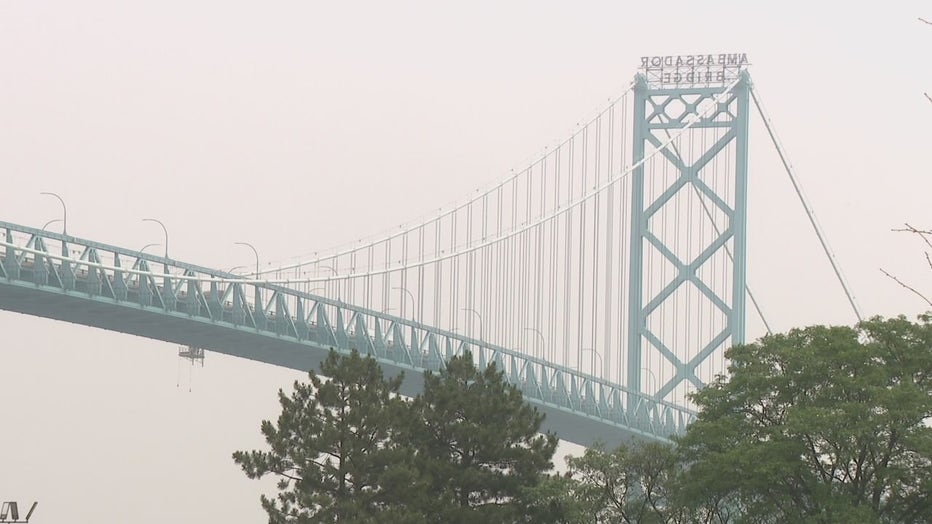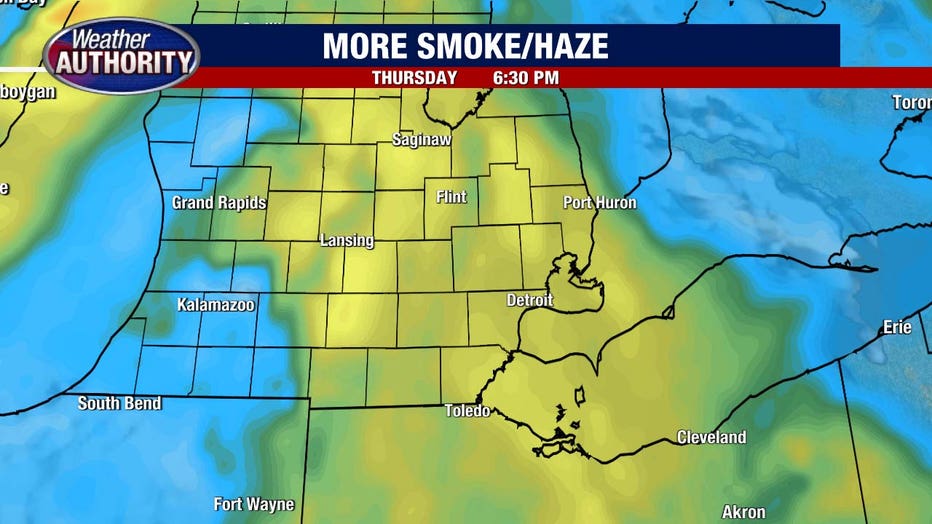Southeast Michigan Air Quality alert continues Thursday; people advised to limit time outside still

The impact Metro Detroit's air quality could have on health
The poor air quality in Southeast Michigan can cause issues for healthy people and exuberate existing health conditions. If you have a heart or lung condition, it is recommended that you stay inside.
DETROIT (FOX 2) - As the Air Quality Alert remains in effect Thursday for Southeast Michigan, it's advised that people limit their time outside, while those with certain health conditions avoid the outdoors completely.
"Being outdoors running I don't think is a good idea," said Dr. Shukri David, the chief of cardiology at Ascension Providence Hospital.
The haze in the air can cause breathing issues, and irritate your nose, and throat. These impacts are worse if you have an existing heart or lung condition.

"When you have a decrease in the oxidation from the pollution and the haze we have out there, it can really stress your heart, and that stress can lead to heart failure, it can lead to arrhythmias, it can lead to heart attacks," David said. "Understand your risk factors and know what your limitations are. Don't try to overexert."
People with heart and respiratory problems, those older than 65, and children should stay inside because they are more susceptible to experiencing negative effects, which could be dangerous.
Though the Air Quality Index fluctuates, the Detroit area's air quality has remained in the top five worst for about the past 24 hours.
Read: What the AQI colors mean
If you have to be outside for prolonged periods wear an N-95 mask, take frequent breaks, and drink plenty of water.
There is some relief expected, though. The smoke should lift by the weekend.

More safety tips:
During unhealthy for sensitive groups (AQI orange) to unhealthy for everyone air quality events (AQI red), the Michigan Department of Health and Human Services (MDHHS) advises the following:
For people with heart or lung disease, pregnant people, older adults aged 65+, children, and teens it is suggested to take the following steps to reduce exposure:
- Avoid strenuous outdoor activities.
- Keep outdoor activities short.
- Consider moving physical activities indoors or rescheduling them.
For everyone else:
- Choose less strenuous activities (like walking instead of running) so you don’t breathe as hard. ‘
- Shorten the amount of time you are active outdoors.
- Be active outdoors when air quality is better.
During very unhealthy or hazardous for everyone air quality (purple to maroon Air Quality Index levels), MDHHS advises the following for everyone:
- Stay indoors with the doors and windows closed using MERV-13 or better air filtration.
- Seek shelter elsewhere if you do not have an air conditioner, and it is too warm to stay inside with the windows closed. Call or text 211 or contact your local health department to find out if there is a shelter or cooling center nearby.
- Use air filters to improve indoor air quality. Whether you have a central air conditioning system or a portable room unit, use high efficiency filters to capture fine particles from smoke. If you don’t have access to those filter systems, you can create a temporary air purifier with a 2012 or newer box fan and attaching a MERV-13 or higher air filter to it. Information is available online.
- Keep activity levels low.
- Avoid outdoor activities.
- Use N95 style masks if you have to be outside.Surgical and cloth masks are not recommended as they are not designed to prevent breathing in the fine particulate matter in wildfire smoke.

